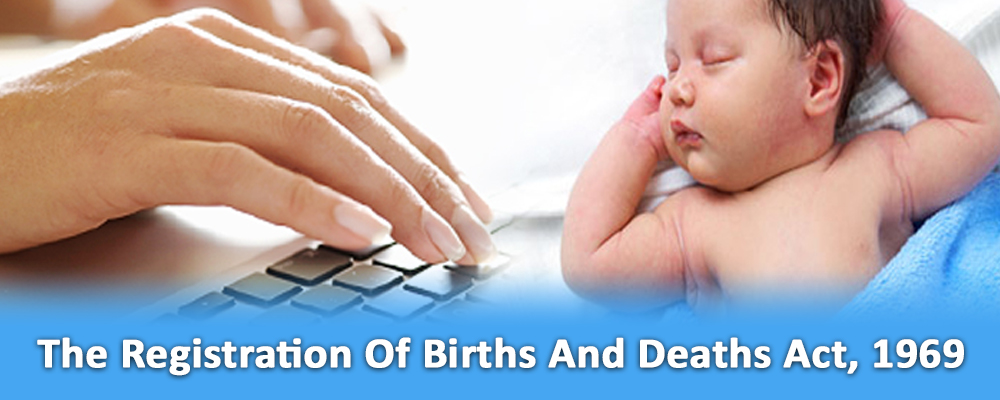The Registration of Birth and Death Acts, 1969 deals with registration of birth and deaths. Now, the question might arise why it is important to register births and deaths of an individual. The record of birth and death of an individual and the causes of their death is important for effective functioning of the country. The way to count, everyone is through civil registration whose process and authorities are provided under this Act. It also helps the country in identifying what are the maximum causes of death, be it any disease or rising number of accidents etc. It will help the country in reducing that problem. It also concerns about the number of deaths so it can be termed as Death Act.
Amendments have been made in this Act after the individuals got missed in the flash flood of Chamoli district of Uttarakhand. The State Health Department had declared the individuals who went missing in the tragedy as dead. The death certificates of missing people will be issued by the authorized government authority to their family or relations. The object of this Act is to regulate matters concerning the registration of births and deaths and matters connected therewith.
There are certain authorities who are given certain powers under this Act. These are:
Registrar- General:
Section 3 of the Act talks about this. It states that the central government by publishing a notification in the official Gazette appoints https://www.leadindia.law/free-legal-advicea person to be registrar general. The main function of registrar general is to issue directions regarding the registration of birth and death. It also coordinates the work between chief registrars and submit the annual report to the central government.
Chief – Registrar:
Section 4 of this Act provides for chief registrar. They are also appointed by the central government. Section 4 clause 3 and 4 of the Act defines Chief-Registrar as the chief executive authority who is responsible for carrying out the execution of the provisions of this Act. He is the chief executive of the state. He implements the rules and orders subject to the direction of the state government.
District – Registrar:
Section 6 of the Act talks about this. They are appointed for revenue districts by the state government.
Registrar:
Section 7 states that registrars are appointed by the state government for local areas be it Panchayat, municipality or combination of any of them. The function of the registrar is to be updated about the death and birth of individuals in his local area which they need to enter into the death and birth registry. Registrars can also appoint sub registrar, but with the prior approval of chief registrar.
Need A Legal Advice
The internet is not a lawyer and neither are you. Talk to a real lawyer about your legal issue

This Act also provides for the process of registration, which is: Section 8 of the Act states that there are certain persons who can give about the birth and death to the registrar of the area. These are:
1. The head of the house should give information about birth and death in the family. In his absence any near relative of the head of the house and if he is also not available, then the oldest adult male of the family.
2. It is the duty of the Medical officer in charge or any person whom he authorizes to carry out the reporting of births and deaths that takes place at the Hospitals, health centers, maternity or nursing home to report about the birth and death that takes place in his hospital.
3. Whoever is in charge of Choultry/ chattram/ hostel/ dharamshala/ boarding-house/ lodging-house/ tavern/ barrack/ toddy shop/ place of public resort has the duty to report about birth and death taking place at their place.
4. If the birth and death take place in the jail, then the person who is in charge of the jail has the duty to report it to the registrar.
Section 11 of the Act states that after receiving the information, whether in oral or written form regarding the birth or death along with the information about their name, their short description, and place of residence registrar will record this information in the register. The person giving information needs to sign the same or if not able to write can put the thumb mark over it.
Section 23 of the Act also talks about penalties in case the person does not give information to the registrar. It states that a person who is duty bound to give information fails to give information or gives false information or refuses to provide information will be liable to fine which may extend to 50 rupees. If the registrar or sub registrar fails to fulfill his duties they will be liable for penalties which may extend to 50 rupees. If any person contravenes any provision of this Act will be liable to a penalty which may extend to 10 rupees.
Birth and death of an individual are natural processes which cannot be controlled but we can make records of the same. It will help in planning, development plans for the country, the amount of employment, food grains required by people living in the country. It helps in the overall effective development of the country.





 Talk to a Lawyer
Talk to a Lawyer